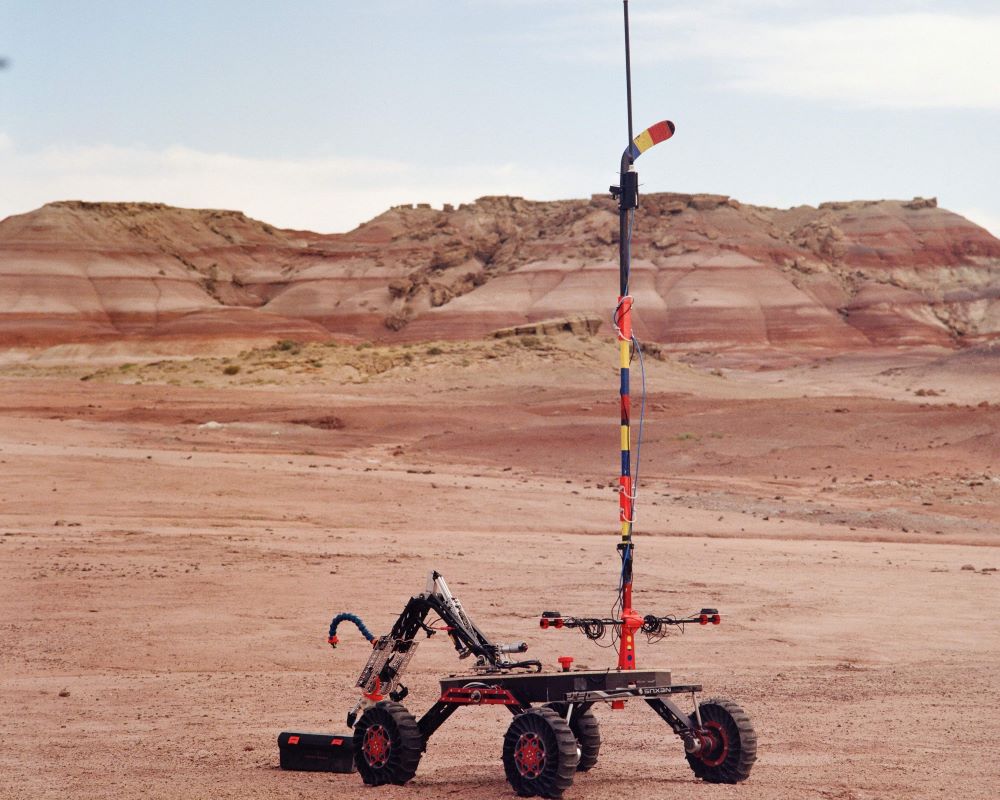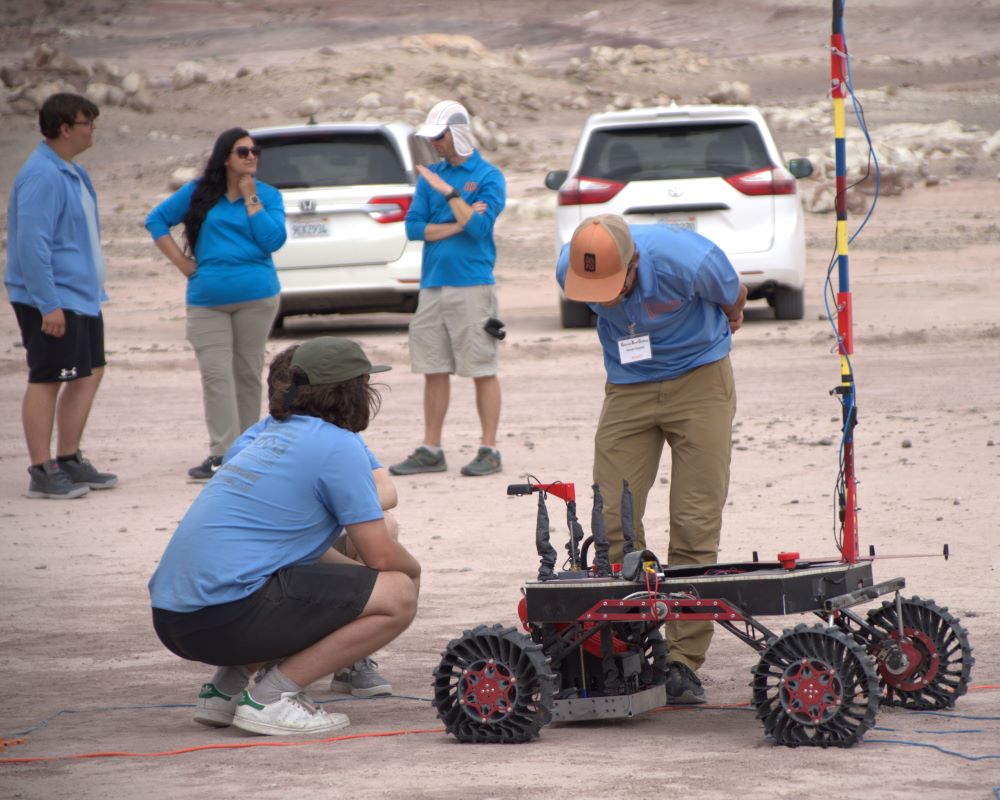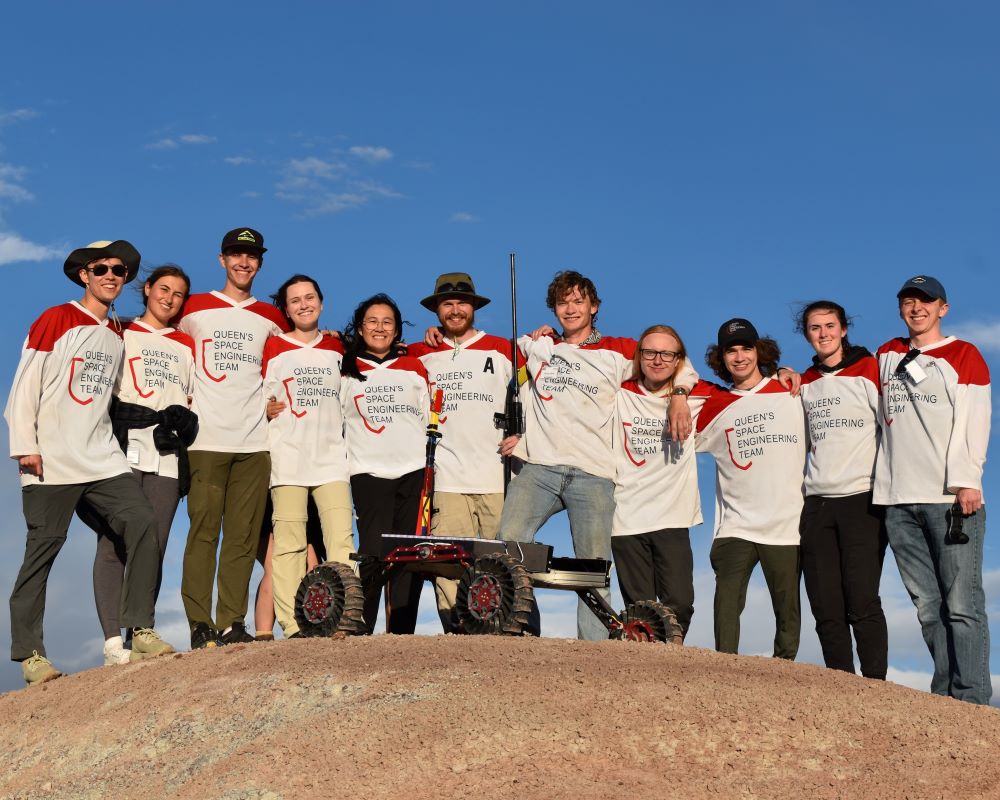In a competition that featured 37 qualifying teams from 10 countries, the Queen’s Space Engineering Team (QSET) placed seventh—first among Canadian participants—at the 2023 University Rover Challenge (URC). The 37 finalists were selected from a pool of 104 applicant teams from 15 countries.
The annual competition took place in June at the Mars Desert Research Station in Hanksville, Utah. From the URC website: “teams of college students design and build the next generation of Mars rover that will one day work alongside astronauts exploring the Red Planet. Teams and their rovers compete in 4 separate missions (Science, Extreme Delivery, Equipment Servicing, and Autonomous Navigation Missions). Mission scores are combined with scores from an earlier design review for the final standings.”

“Of the six teams who placed above us, five achieved podium placements during URC 2022 and 2023,” says Lily de Loë, the QSET Captain for 2022-2023. “It is a tremendous accomplishment for QSET to have placed comparatively to these teams whose size, faculty involvement, operating budgets, and resources greatly exceed our own. Further, QSET placed ahead of world-renowned schools such as Cornell, and the two other Canadian finalists, Toronto Metropolitan University and Concordia University. QSET remains the only Canadian team to have been accepted to the URC finals every year we have participated in the competition.”
The four competition tasks test rovers on all aspects of a real Mars mission. “The rover needs to navigate autonomously, service a mock Mars lander, assist astronauts in a simulated extravehicular activity, and conduct life detection and habitability experiments,” explains de Loë. “We are particularly excited about our score from the Science Mission, where the team was awarded 93.96 out of 100 points. Our success in the Science Mission demonstrates the value of interdisciplinary collaboration; design and integration of the payload, and selection of the on-board experiments required a wide range of technical expertise. QSET’s members represent every engineering discipline, in addition to programs from the Faculty of Arts and Science”. Scores from the four competition missions are available on the URC website.

The QSET team works on two major projects each year. The satellite team builds a 3U CubeSat for competition at the annual Canadian Satellite Design Challenge, while the rover team eyes the URC event in the U.S.
Work on the rover is largely dedicated to making changes to the vehicle every year, according to a profile of the team from the winter term, so that it can do things like navigate on its own through rough terrain and operate dexterous robotic arms. The modifications this year have included redesigning the wheels, designing and manufacturing a new scientific payload, updating the software on the robotic arm, and improving the autonomous systems.
“This is the highest percentile QSET has ever placed, and the competing teams are the best they've ever been, making this placement something we're extremely proud of!” said a social media post from the team upon its return home from the competition. The team will be hiring its next cohort of members in September 2023.
